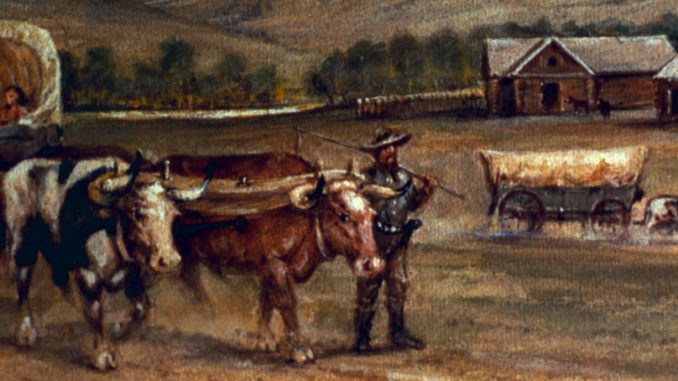
On This Day, May 20th, 1862, The Union Congress passes the Homestead Act, allowing an adult over the age of 21, male or female, to claim 160 acres of land from the public domain. Eligible persons had to cultivate the land and improve it by building a barn or house, and live on the claim for five years, at which time the land became theirs with a $10 filing fee.
The government of the United States had long wrestled with the problem of how to get land into the hands of productive farmers. Throughout the 19th century, politicians had pursued a variety of schemes to raise revenues from land sales, but the results were always mixed. By the 1830s, Missouri Senator Thomas Hart Benton proposed a program that would allow citizens to claim land from the public domain and develop it into farmland.
By the mid-19th century the issue of land became embroiled in sectional politics. In the 1850s, the fledgling Republican Party endorsed a homestead act as a way to develop an alliance between the Northeast and Midwest. But the South wanted no part of such a scheme. The expansion of slavery had become too important to the South, and they felt expansion to the west was the only way to keep the institution healthy. Filling the West with small individual farmers did not sit well with Southerners.
Consequently, it was impossible to agree upon a proposal while the struggle over slavery continued. The Republicans were strong enough by 1859 to push an act through Congress, but Democratic president James Buchanan vetoed the measure. However, the events of the war soon removed all obstacles to the bill. The secession of Southern states opened the way for passage of the Homestead Act of 1862.
The Homestead Act was important symbolically if not in practice. By 1890, only about three percent of the lands west of the Mississippi had been given away under the act. This measure was far less effective in making vacant land productive than were liberal mining laws and grants to railroads. Nevertheless, it stands as a shining example of legislation that passed in the North while the South had seceded from the Union.


is this still in effect